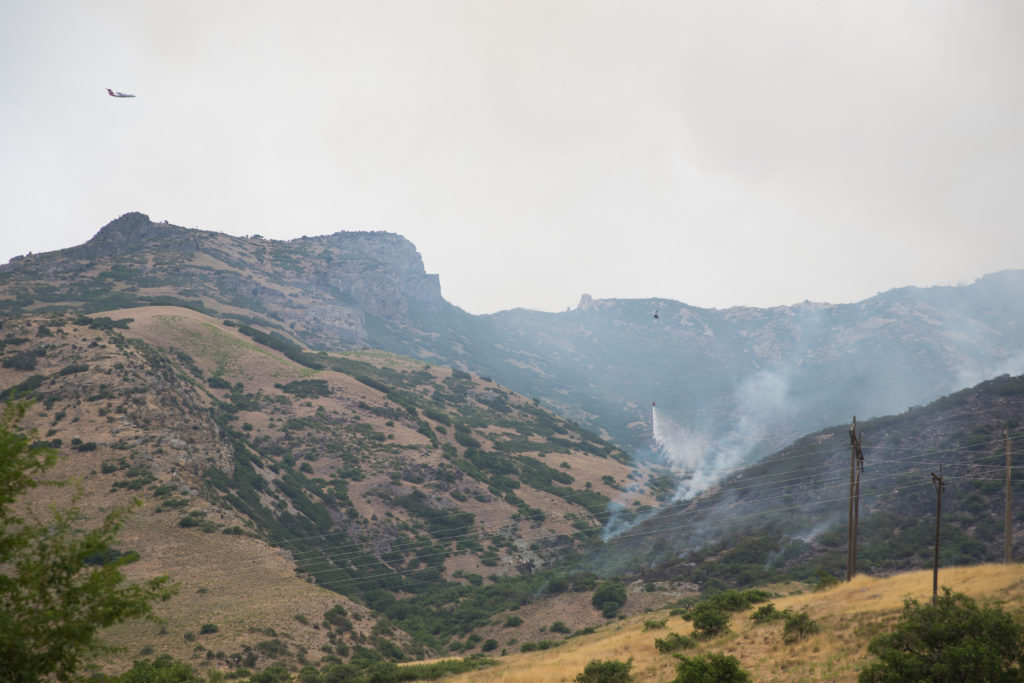
Local authorities suggest that a mix of good weather and residents doing their part will be key to this season’s fire prevention after the Alaska Fire burned 489 acres just southeast of Provo this summer.
While no residents were evacuated during the Alaska Fire, the wildfire served as a reminder that the danger in Utah County is still there.
Provo fire marshal Lynn Schofield explained that the Alaska Fire scared people, but no one lost their home.
“We need people to be careful with how (they) use fire everywhere in our city, but especially in our mountains,” Schofield said. “At this point in the summer, any ignition will move quickly, even with the little bit of moisture.”
According to Schofield, the Provo Fire and Rescue Department tries to be proactive preventing fires by teaching residents proper fire management and setting fire restrictions in place.
Thanks to last winter’s snowfall, large wildfires like 2018’s Pole Creek and Bald Mountain fires are unlikely, but local fire departments warn that mismanaged campfires can have disastrous effects.
“We had a really good snow year, and it came off really slow,” Forest Service public affairs specialist KJ Pollock said.
This moisture prevents large, property-damaging wildfires; however, across the Wasatch Front, a few small fires have been caused by mismanaged campfires.
Pollock also warned that even though fire season generally continues until the first snow sticks to the ground, fires can start any time of the year.
“Campers really need to make sure their fires are properly extinguished and cold to the touch,” Pollock said.
Even though Pollock says this year’s fire season is unlikely to be as bad as last year’s, residents who lived in the evacuation and pre-evacuation zones for the Pole Creek and Bald Mountain fires are unlikely to forget what it was like to live so close to a raging fire.
“Stress levels were high. We would go to bed not knowing if we would be woken up in the middle of the night to evacuate,” said BYU international security advisor Benjamin Cluff, who was placed on pre-evacuation at the beginning of the semester. “We are glad we don’t have to worry about it anymore.”
According to Cluff, the risk of fires don’t deter these mountain residents.
“My neighbors had been living there for twenty years, and this was their second pre-evacuation in 20 years,” Cluff said. “They still feel safe, and they just realize fires are just a part of living there.”




